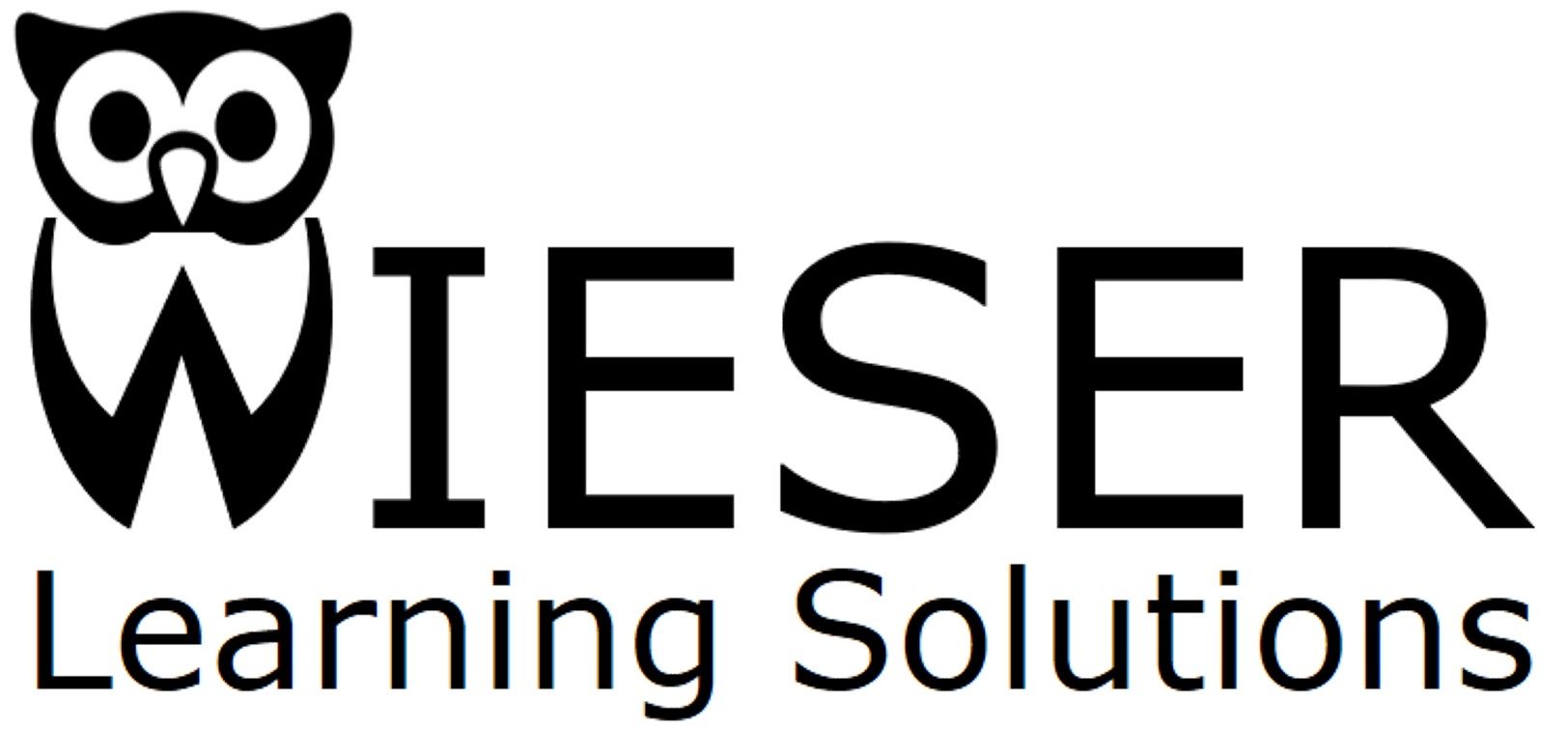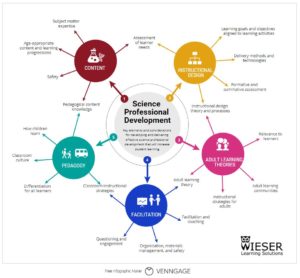A critical part of being a learning professional, whether it is an instructional designer, a trainer or facilitator, or a classroom teacher is that we constantly need to learn new information, new skills, and practice our craft. As a professional developer of K-12 science teachers, I was often asked by friends outside of my field what exactly I did at work and why teachers need professional development.
I created this mind map to help better explain what knowledge and skills are needed to provide quality science professional development. I encourage districts to also use this mind map when you consider which providers of science professional development you should bring in to support your teachers and their learning. It can serve as a great starting point to learn more about their approach to providing services.
- Content. The professional development provider needs to have expertise in the content being taught, but also needs to know current research that supports what is important for students to know and do in the content area. This is critical in supporting teachers as they to continue to grow their content knowledge – especially in a field like science – to best support the students in their classrooms.
- Instructional Design. The professional development teachers receive should be based on solid instructional design principles. There should be clear alignment between learning tasks, goals, objectives, and the needs of the teachers, and all should be based on solid instructional design theory and principles.
- Adult Learning Theory. K-12 science teachers have adult learning needs that differ from the students they teach. It is important that the provider of teacher professional development knows and implements appropriate strategies for supporting adult learners.
- Facilitation Skills. Teacher professional development facilitators need to have solid grounding in both adult learning theory (andragogy) and K-12 learning theory (pedagogy). This is important because teachers learn and interact with new content and skills as adults and need to engage in adult level thinking and activities. However, it is equally critical that classroom instructional practices are also modeled so teachers can later apply that learning in their classrooms with students.
- Pedagogy. The professional development provider needs to have a firm understanding of how students learn the content, best-practices for instruction, and strategies for differentiating the content to best support student learners. Knowledge in this area helps model appropriate classroom strategies to support teachers to increase student learning.
If you would like more information, I am happy to discuss with you how Wieser Learning Solutions can address all five of these critical components of teacher professional development and help you reach your district or school goals.

